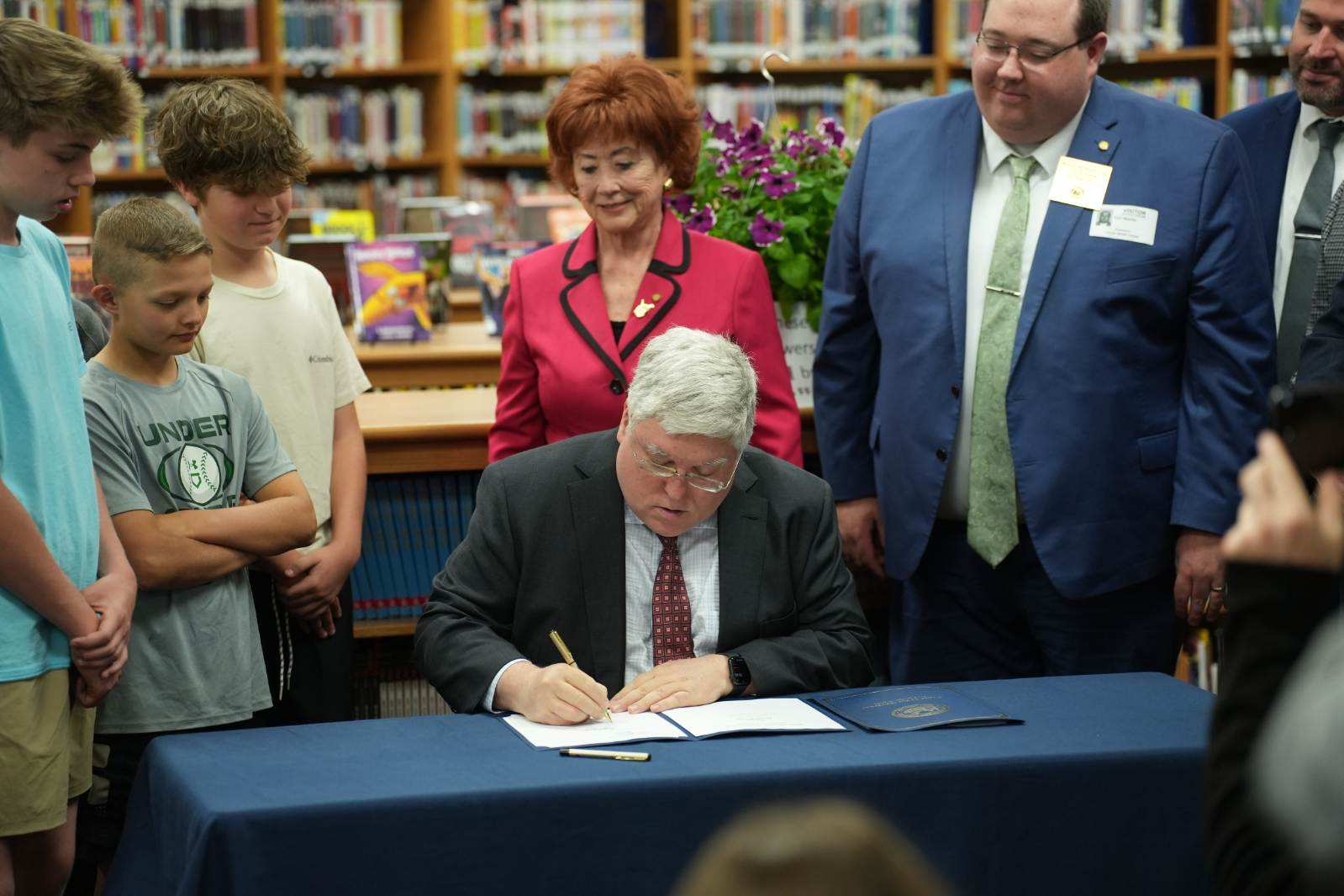Two bills passed by the West Virginia Legislature earlier this year were signed into law Tuesday, as the governor continues traveling the Mountain State to highlight pieces of legislation taking effect.
Among those is House Bill 2003, which bans students from using smartphones in public school classrooms. Under the bill, county boards of education set specific terms for when and where smartphones can be used, plus penalties for students who violate these policies.
The bill creates some exemptions for phone use related to learning or student-specific needs, but broadly grants teachers the authority to confiscate devices and enforce penalties against students who use their phones during class time.
The bill was introduced to the West Virginia House of Delegates on behalf of Gov. Patrick Morrisey by House Speaker Roger Hanshaw, R-Clay.
Morrisey traveled to Lincoln Middle School in the Harrison County city of Shinnston Tuesday morning to sign the bill into law.
“We know that the use of personal electronic devices in the classroom increases distractions, academic misconduct and bullying,” Morrisey said. “Overall, it creates a negative learning environment.”
Morrisey also signed into law Senate Bill 280, which requires public schools and state colleges to display the U.S. motto, “In God We Trust,” alongside the U.S. flag in a main building on campus, provided that these materials are funded by “private donations” and not “public funds.”
Lead sponsor Sen. Mike Azinger, R-Wood, has tried for multiple years to get such a bill passed, but was unable during previous legislative sessions.
Azinger joined Morrisey at the middle school Tuesday and said passing the bill was an act of “perseverance.”
“I just want to give honor to God for this bill, because it tells Americans and our kids… what our U.S. motto is,” Azinger said.
This year, Azinger also sponsored a bill to allow for the display of the Ten Commandments — a series of Christian religious directives outlined in the Bible — in public school classrooms, but it was not taken up for a reading.
Morrisey said Senate Bill 280 will help students “learn that, here in West Virginia, we do value God, family and country.”
Dozens of bills passed by the state legislature this year still await review from the governor. Morrisey has until Wednesday, April 30 to veto bills or sign them into law. After that date, any remaining bills passed by the state legislature will automatically become law.
